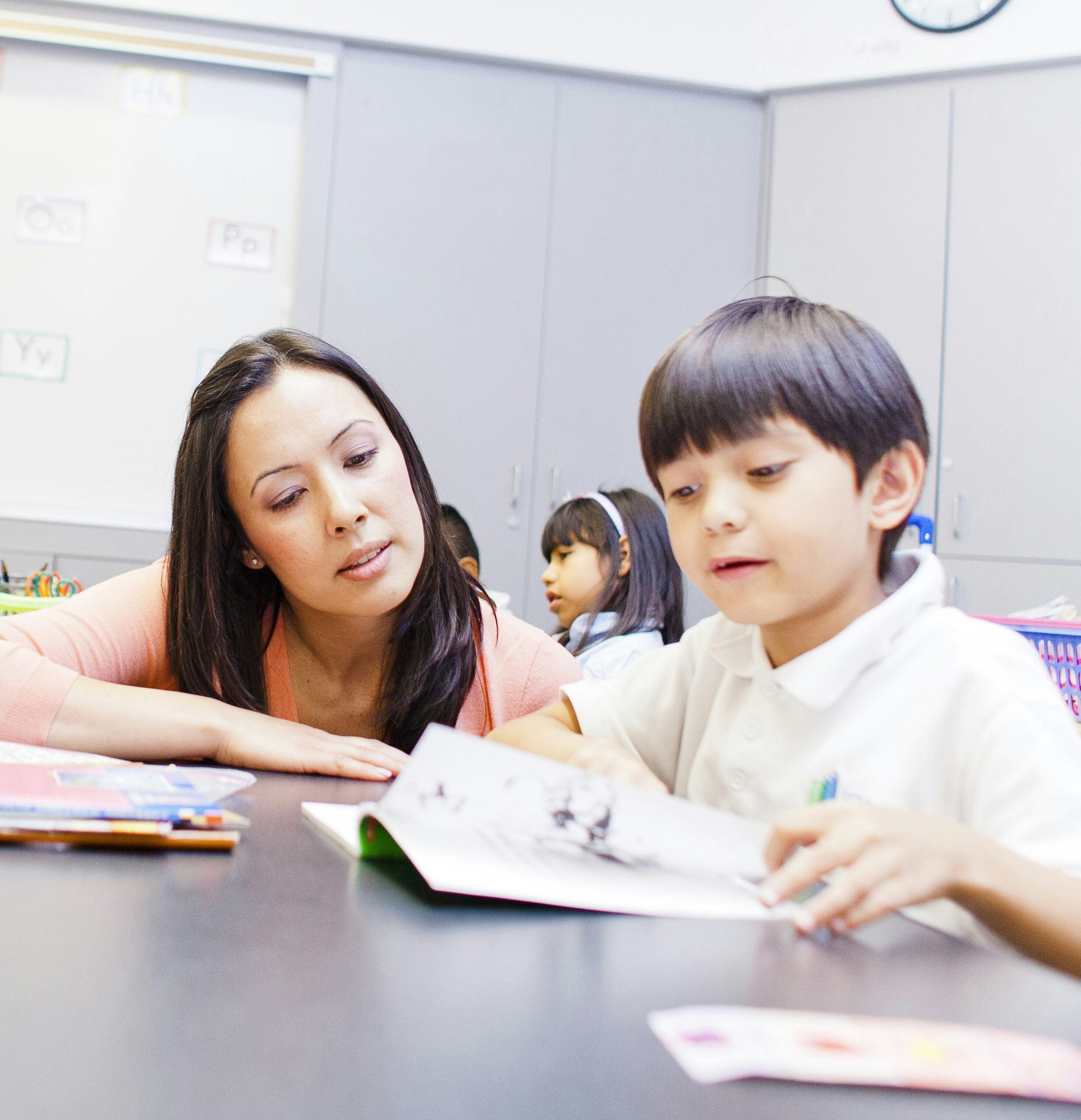UCLA ED&IS experts in brain research, diverse learners contribute to investigative articles on need for better assessments, interventions and state policies.
UCLA researchers are featured in an investigative series by LAist on how the California educational system, from early childhood to college and adulthood, can help students with dyslexia overcome academic challenges and achieve the reading level of their peers.
Maryanne Wolf, co-faculty director of the dyslexia team for the UC|CSU Collaborative for Neuroscience, Diversity, and Learning and director of the Center for Dyslexia, Diverse Learners, and Social Justice at the UCLA School of Education and Information Studies, leads a team of experts that are quoted in the LAist series including assistant researchers Rebecca Gotlieb and Laura Rhinehart. Co-faculty director of the dyslexia team for the UC|CSU Collaborative, Sue Sears, professor of special education at California State University, Northridge is also highlighted in the series.
The UC|CSU Collaborative is unique in bringing together top experts from the University of California and the California State University to reimagine teacher education to better focus on the science of reading, with the shared goal of exponentially increasing literacy for the next generation. The UC|CSU Collaborative was established in June 2019 by Assembly Bill AB 1703, representing a historic and critical investment in the state’s children with dyslexia and other literacy challenges. Alison Yoshimoto-Towery is the recently appointed executive director of the UC|CSU Collaborative.
The California Legislature believes this to be one of the civil rights issues of this generation, and a true diversity of brains is needed in California’s innovation economy. By setting aside $6 million to establish the UC|CSU Collaborative, the state’s leaders are creating the foundation for cutting-edge teaching and learning that will prepare the next generations for successful lives.
Within the UC|CSU Collaborative, Professors Wolf and Sears leads a task force of 12 researchers and teacher educators with experience in early childhood through 12th grade, in general, bilingual and special education settings, who are focused on teacher preparation. Since the summer of 2020, the task force has worked to examine, revamp, and create reading strategies for diverse learners that supports the idea of structured literacy, a practice that emphasizes the association between letters and sounds. This is a boon for students with dyslexia who cannot always identify a word they don’t immediately recognize through letters in the word, patterns of sentence structure, or photos and pictures on a page.
Gotlieb tells LAist that there is a lot to learn about the biology behind dyslexia, which generally means that there is less activation in the areas of the brain on the left side that support language-based skills, and that with the appropriate reading instruction, people with dyslexia can show a pattern of activation in the brain that similar to people without dyslexia. She also says that the right assessments can identify students at risk of developing dyslexia before they even fully learn to read. But it is only the beginning.
“Screening is only as effective as the intervention that it’s paired to,” Gotlieb says in an article on early screening and the current barriers to providing it for children between kindergarten and second grade. These barriers include lack of training and teacher shortages across the state.
Professor Sears, who has been training teachers in CSUN’s Special Education Literacy Clinic since 1990, says that hands-on experience with real students and families is key to preparing teachers for the challenges of instructing students with dyslexia and other learning needs.
“I’m hoping that new teachers will come out with a strong understanding of why foundational skills are important, but that they’ll also be able to embed those skills in a really rich, comprehensive literacy program,” Sears said to LAist. “If [students] don’t see themselves in books, if they don’t get immersed in a really good story, if they don’t see the value of reading to learn new information, then they’re not going to read.”
Wolf spoke to LAist on the long-term effects of dyslexia and other reading challenges, and said that she would like to see dyslexia screening implemented in the criminal justice system.
“A great number of our incarcerated individuals first failed because they were called a failure and they didn’t understand and no one understood what to do about them,” posits Wolf.
Wolf further stresses that dyslexia should not be considered a deficiency, but rather a different brain organization that is highly beneficial if understood correctly by educators, students, and families. “Early assessment. Early intervention. And educating our teachers about all of this. That will help us not have so many fall through the cracks,” said Wolf in the article.
Gotlieb echoed Wolf’s sentiments in the article. “Our perspective is that dyslexia, it’s not like a curse, it’s not something to be avoided,” Gotlieb said. “It’s something to know about so that we can help a student reach their fullest potential.”
To read the LAist series on dyslexia, visit these links:
August 3: The Science
August 10: The Realities Of Early Childhood
August 17: Policy Meets Practice
August 24: Bringing Dyslexia To College
August 31: How Teachers Are Prepared
September 7: Through The Cracks
Visit these links for interviews with Maryanne Wolf and Laura Rhinehart on KPCC’s “AirTalk.”
Learn more about the UC|CSU Collaborative for Neuroscience, Diversity and Learning, and Center for Dyslexia, Diverse Learners, and Social Justice at UCLA.
